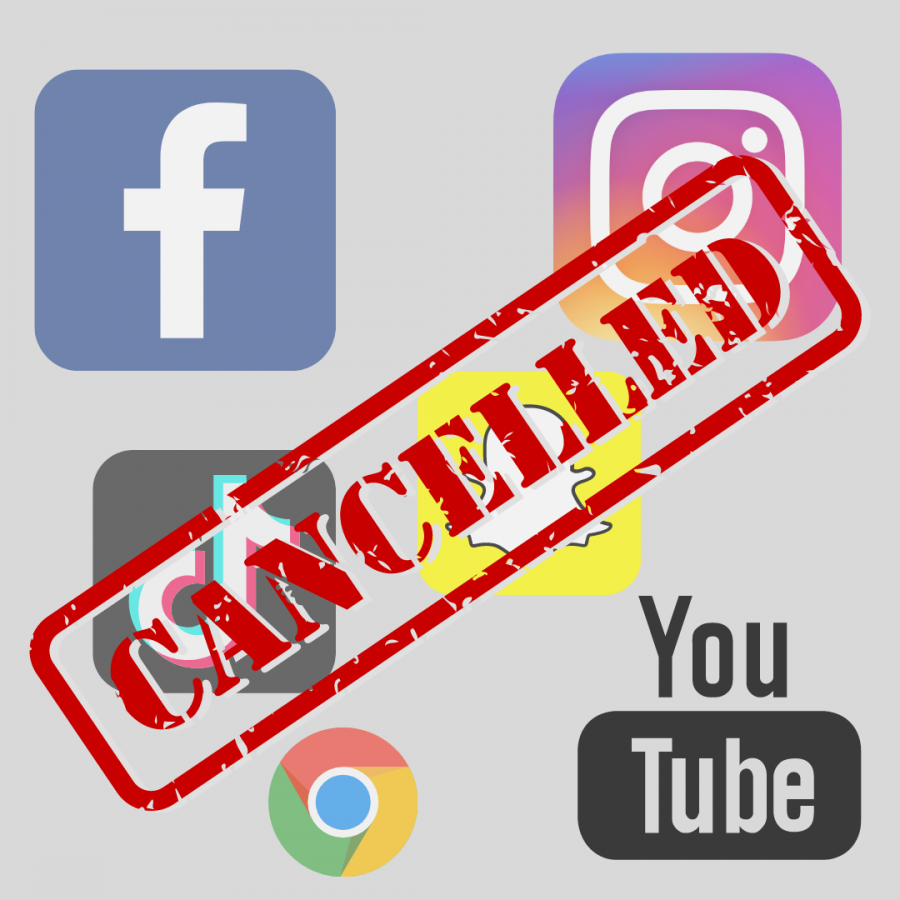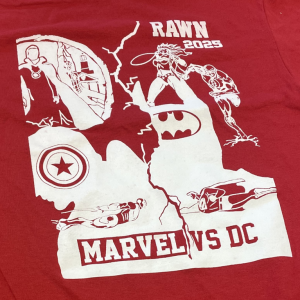Cancel culture in the age of the internet
A rise in political correctness has become a challenge for creators across the web
April 20, 2021
It seems like every week either an actor, influencer or someone in between is being “canceled.” We’ve seen it with YouTubers like Shane Dawson, or TikTokers like the D’Amelio sisters. In some cases these people 110% deserve to have their platforms taken away, but most times people jump straight to canceling instead of attempting to hold the person accountable and, perhaps more importantly, educating them.
When most people talk about cancel culture, this idea of holding the person accountable becomes the center of the conversation. In most cases, the accused has made a mistake that they can learn and grow from, but people are quick to “cancel” them to the point where it usually just results in bullying. On the opposite end, we have people that make unforgivable decisions or repeat their behavior instead of learning from it.
For example, the previously mentioned YouTuber Shane Dawson was ultimately canceled and blacklisted on the internet for a slew of inappropriate content he released over the years. This content included lewd remarks regarding animals, pedophilia and racism. After so many years on the internet, Dawson was cancelled by the public (and, between you and me, rightfully so). Many believe that people who consistently make these “mistakes” obviously aren’t growing from them and need to be de-platformed. According to kulturehub.com, a crowd-driven website that focuses on stories about pop culture, YouTube has since taken down advertisements on Dawson’s videos, making his account demonetized.
Onto the opposing end, arguably TikTok’s biggest stars, sisters Charli and Dixie D’Amelio, receive backlash for almost everything they do. In November of 2020, the D’Amelio’s family channel released a video titled “Dinner with the D’Amelio’s” in which they brought in fellow influencer James Charles. There were two parts of this video that viewers seemed to have an issue with: one regarding Dixie and the other Charli. In regards to Dixie, folks weren’t too happy when she gagged at a snail entree prepared by the family’s personal chef. As for Charli, people concluded that she was ungrateful when she made a comment about it being cool if she were to hit 100 million followers on TikTok by the end of the year. Viewers arguably blew both situations out of proportion, causing Charli to lose millions of followers because they believed they were just a number in her eyes. There were also comments that flooded Dixie’s videos saying she had no manners and calling her a brat because she did not want to eat a snail. Situations like this are what make cancel culture so toxic: two very normal situations were blown out of proportion and resulted in crowd-sourced bullying instead of moments to nurture empathy and self-awareness.
Smaller creators get their fair share of cancellation as well. Just the other day, a creator with only 12k followers released a video stating something along the lines of “if you got your ears pierced when you were a baby your parents are weird.” This video garnered a lot of attention, mostly from people of color, because children getting their ears pierced at a young age is common practice and even tradition in some minority communities. People in the comments were quick to call her out and actually educate her on their viewpoints and how the video could come off as ignorant and insensitive. Instead of cancelling this creator for something she was clearly unaware of, people made her aware and she learned something new. This is a prime example of how holding someone accountable and educating them makes more of a difference than just jumping straight to ending their career or decreasing their following.
With “tea” pages like @tiktokroom or @theshaderoom, which have millions of followers, all the internet’s drama and scandals are just a simple click away. With that comes the comments made by viewers, which is the most toxic aspect of these pages. On more than one occasion, you can see as a “scandal” progresses, opinions will go from “this person needs to be cancelled” to “maybe I’ll sit this one out until we know more information.” This sudden switch points to another large issue within “cancel culture,” which is assuming. People are quick to jump to conclusions, which brings unnecessary drama to an already public situation.
In a generation where we are working to be more progressive, I think we need to be careful with how we handle internet scandals. As established above, it is clear which people in certain situations are worth completely cancelling and which ones are not. Viewers seem to forget most influencers are living their teenage lives making the same mistakes we do, but under a microscope and bullying them when they make a mistake will only make them more resentful instead of moving them to further educate themselves on their situation. While youth is not an excuse for some mistakes or decisions, most times people just need that accountability to push them to be a better person.






